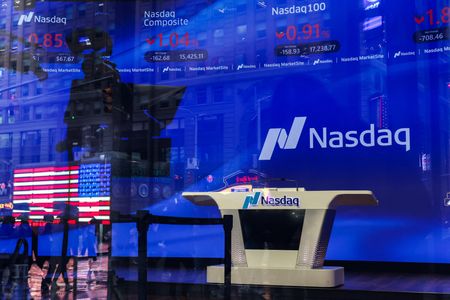By Aishwarya Jain
(Reuters) -Vacation rental platform Airbnb on Thursday forecast second-quarter revenue largely below Wall Street estimates and signaled softening demand in the U.S. as an erratic trade policy hammers consumer sentiment and sparks worries over growth.
Shares of the company fell more than 6% after the bell, set to add to the year-to-date decline of about 7%.
The company expects second-quarter revenue between $2.99 billion and $3.05 billion, the midpoint of which is below analysts’ estimates of $3.04 billion, according to data compiled by LSEG.
Over the last two months, Delta Airlines warned travel demand has “largely stalled”, while hotel operator Hilton indicated travelers were in a “wait-and see” mode, as President Donald Trump’s on-again off-again tariffs take a toll.
Airbnb Chief Financial Officer Ellie Mertz said on an earnings call that guests were booking trips closer to the check-in date, indicating that the booking window was growing shorter.
Booking window refers to the number of days between the reservation date and actual arrival and a shorter booking window points towards increased consumer uncertainty and caution in travel spending.
Nights and experiences booked during the first quarter rose 8% to 143.1 million on a global basis. Excluding North America, bookings were up 11% from a year earlier.
The U.S. comprises a vast majority of the San Francisco-based company’s North America business, which contributes about 30% to nights booked on its platform.
Airbnb said it expects average daily rate, or the rental revenue earned for an occupied room per day, to remain flat in the second quarter and core profit margin to be slightly down from a year earlier.
It also expects moderation in the year-over-year growth rate of the nights booked in the current quarter from the first.
Total revenue for the first quarter rose 6% to $2.27 billion, compared to analysts’ estimates of $2.26 billion.
However, net income slumped 41.7% to $154 million due to higher headcount, write-downs of certain historical investments in privately held companies and lower interest income.
(Reporting by Aishwarya Jain in Bengaluru; Editing by Sriraj Kalluvila)









